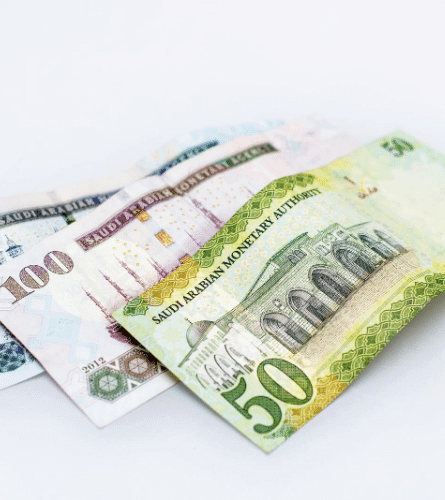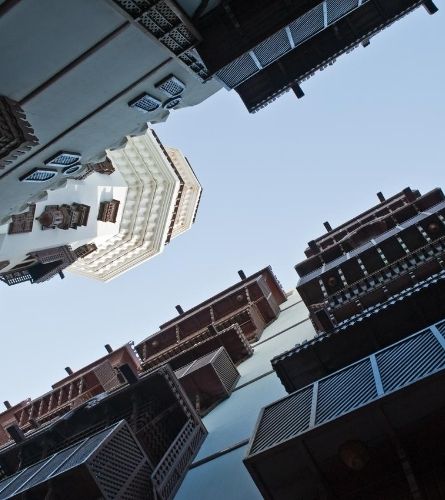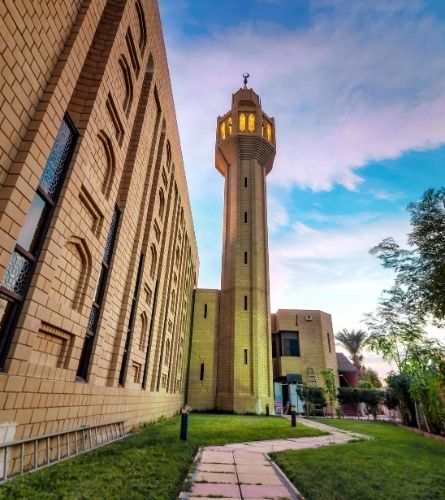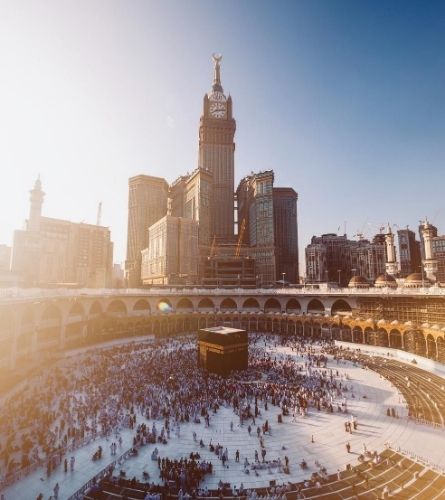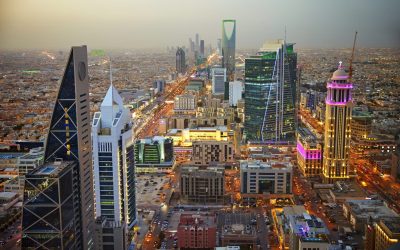Living in Saudi Arabia
Start your adventure in Saudi ArabiaAbout Saudi Arabia:
If you’re considering moving to Saudi Arabia to teach, there are many different things to learn about and take into consideration before committing to such a big lifestyle change. Living in Saudi Arabia will require some major adjustments.
You can prepare yourself for most of the new experiences you’ll have in Saudi, but there are also some things you just have to see for yourself.
Saudi Arabia has a total population of 28.7 million people with about 8 million foreigners. The cost of living is noticeably cheaper than its western counterparts. For example, a cappuccino will cost about $2.67 while a one-bedroom apartment can cost between $250 – $400 USD a month. However, all of the schools we work in Saudi provide housing for the teachers. Since Saudi Arabia is in the desert, most of the consumer goods are imported so it will be reflected in the day-to-day prices.
Prior to moving abroad, schools will conduct the interview, negotiations, and visa before you depart your home country. Just expect the interview and hiring process to take between 1-3 months. Most expats including teachers live in gated community compounds that include accommodations. The healthcare system has standards to US or European hospitals and healthcare facilities. Please plan accordingly but also is ready for changes.
It is recommended that if you bring about $1,000 USD in start-up funds, you’ll be able to make the transition a little bit easier without worrying about cash. Employers will usually reimburse you for your transportation costs. Most expat experience a better quality of life at a fraction of the price.
Temperature and weather in Saudi Arabia –
Saudi Arabia has a desert climate, so it gets extremely hot during the day and temperatures drop dramatically at night. The summer temperature averages 45C (113F) but can reach as high as (54C) 129 F. The fall and spring range between 84 °F (29 °C). Accommodations are built with these temperatures in mind and are typically properly air-conditioned.
There are plenty of things to do for fun in Saudi Arabia. Soccer (Futbol) is the national sport but they enjoy treasures such as camel racing. Many expats enjoy traveling to different cities and countries nearby including the UAE, Qatar, Egypt, and more.
Cost of living in Saudi Arabia
The currency in Saudi Arabia is the Saudi Arabian Riyal (SAR ﷼), and it’s divided into 100 halala.
The cost of living in Saudi Arabia is about 30% lower than in the U.S., and the average foreign teacher salary ranges between $30,000 – $54,000 USD.
Foreign teachers often receive good benefits packages that cover some form of housing, insurance, and education for their children. If teachers don’t have to worry about these extra expenses, then the cost of living feels quite reasonable compared to other places in the Middle East.
Some recurring expenses you’ll want to budget for will be food, transportation, and any extra goods you may find in the malls! Groceries are reasonably priced compared to what you’re used to; however, if you choose to eat out all the time, it will add up. As for transportation costs, many expats find that they can afford a more luxurious car in Saudi – it’s also cheaper to fill up with gas due to the country’s position in the oil sector.
Banking:
Once you get your residence permit in Saudi Arabia, you can choose what kind of bank to open an account with. There are local and international choices, and mobile/online banking is common.
Something to note about banking in Saudi is that due to Islamic law, banks do not pay interest on your balance, nor do they offer high-interest loans. Accumulating [a lot of] debt is a criminal offense, so be sure to stay on top of your payments.
If you want to earn any interest on the money you store in the bank, you’ll likely want to transfer a portion of it into an offshore account.
Payment methods:
Credit card – Major credit cards are accepted at most businesses in Saudi Arabia. You’ll also be able to find ATMs if you need one. Most big credit cards are accepted in Saudi Arabia (Visa, Mastercard, and sometimes American Express); however, you’ll be able to open a local bank account and get a new card from them if you’d like. Just be careful when moving money into your investments or transferring any money to your home country bank accounts. Fees may be much larger if you use a local bank instead of an offshore account.
Cash – Cash is still a very common method of payment so it might be a good idea to carry some on you at most times. Don’t forget to negotiate when purchasing items either – don’t pay more than you should!
Taxes:
There is no personal income tax in Saudi Arabia, so this is one less thing you’ll need to worry about!
Housing situation in Saudi Arabia
Living in a Western compound
The term “compound” sounds intimidating at first, but compounds in Saudi Arabia are one of the best places to live for foreigners!
Most expats who move to Saudi Arabia to teach end up living in a Western compound. This kind of living situation allows you to experience more freedom than you will once you leave the compound. Most compounds have restaurants, pools, and other amenities within them, and you’ll be around other Westerners, which helps alleviate some of the culture shock that you’re bound to experience.
The accommodation within these compounds is usually decent quality and quite spacious. However, the downside of living in a compound like this is the cost compared to living outside of a compound.
Most employers will provide accommodation when you sign a contract with them, but it will differ on whether or not this apartment will be within a compound. Be sure to speak with the school about what you’re looking for to ensure that you don’t end up in a bad living situation.
Consider who you’re bringing with you as well – if you’re bringing along a spouse and children, they will probably be happier in a compound, as they’ll have more freedom there.
Western compounds are also good for teachers who are still getting used to living in the Middle East, and many people end up moving out of a compound after a few years. This allows you to get the best of both worlds and experience more of the culture first-hand once you’re ready to do so.
Tip: When you’re finalizing things with your new employer, ask for pictures of the accommodation – or plan to go out there early and check out your housing situation yourself!
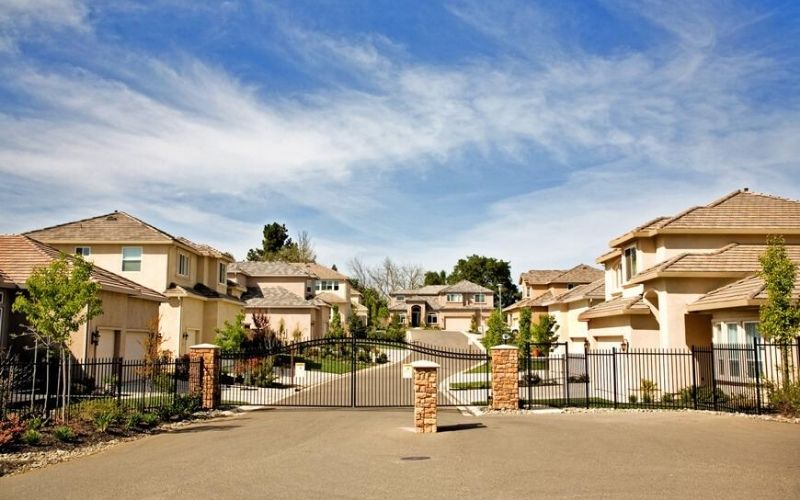
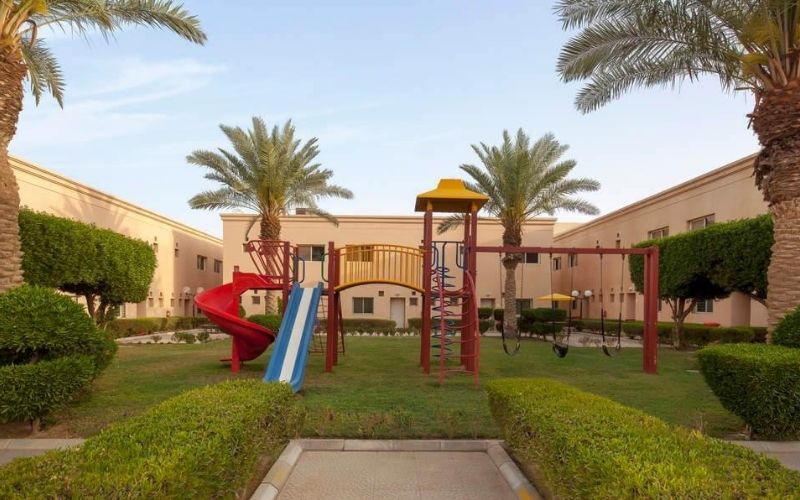
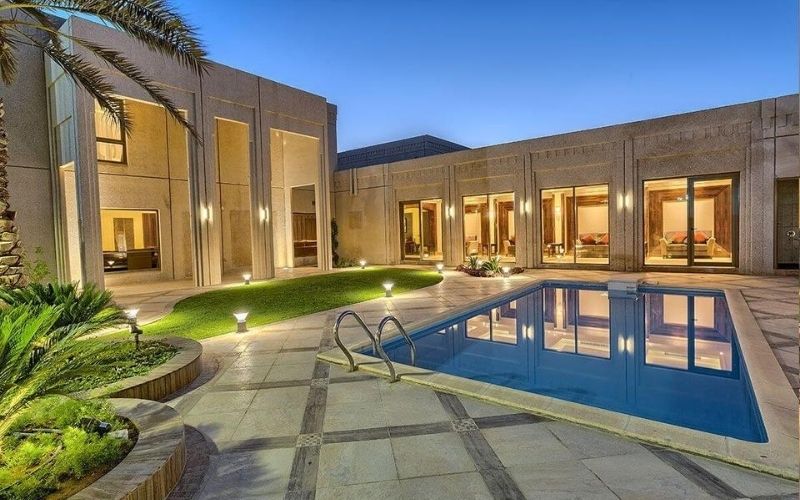
Living off-compound
As with just about any other country, you need to be careful if you go out looking for off-compound housing. Don’t let anyone try to rip you off, and be sure to negotiate prices down.
If you’re moving to Saudi Arabia to teach, your contract will likely already have accommodation set up for you so you won’t have to deal with this.
The main benefit of living off-compound is more freedom in who you can invite over (no security to get through), but do keep in mind that neighbors will sometimes keep an eye on you. If they’re unhappy with anything you’re doing, they’ll make it quite clear. To steer clear of this, be respectful of local customs and culture!
Security in Saudi Arabia
A major difference (depending on where you’re from) between your home country and Saudi Arabia will be the amount of security within the compounds, government buildings, embassies, etc. There will be armed guards from the National Guard in places like this, and they will ensure that you adhere to the rules.
It’s intimidating to see the guards around a building or compound for the first time, as they are armed with automatic weapons, but this is normal throughout the country.
Dress code in Saudi Arabia
The dress code varies a bit from city to city in Saudi Arabia. If you’re teaching in Jeddah or Dammam, the dress code is a bit more westernized and less strict. However, if you’re teaching in Riyadh, you need to be careful to adhere to the rules when it comes to covering up.
Women:
In public – You’ll be expected to wear what’s called an abaya over your regular clothing. An abaya is the long black garment that you see Saudi women wearing in photos. You’re encouraged to wear a headscarf as well, just to be safe. As for shoes – wear whatever you’d like.
As a foreigner in Saudi, you would not need to cover your face like the woman in the photo; however, you will need to wear the abaya (long black garment), as well as a headscarf that covers your hair.
Before leaving your home, make sure you can tick off these boxes:
You’re covered up to your wrists and down to your ankles
You’re not showing any skin and your clothing isn’t tight or sheer
If you’re wearing makeup, it’s toned down
Religious (non-Muslim) jewelry is hidden
At home – Wear whatever your heart desires!
Men:
In public – Cover your legs and shoulders; dress modestly. Also, avoid shorts and skinny jeans. In Saudi Arabia, it’s frowned upon to wear much jewelry. A wedding ring and wristwatch are fine, but avoid walking around with any other jewelry on, especially jewelry that’s associated with another religion. Suits or nice (not too tight) clothing is acceptable to wear to work, depending on the dress code policy.
Before leaving your residence, make sure of the following:
Your shoulders and legs are covered
You’re not wearing shorts or skinny jeans
You aren’t wearing extra jewelry
You smell good (cologne is quite popular among Saudi men)
At home – Again, wear whatever you want! Don’t go too crazy, but you’re allowed to walk around the western compounds (if you live in one) with shorts on.
Customs and etiquette
Public interactions between men and women in Saudi are limited, and this can be difficult for foreigners to get used to. Saudi Arabia is still very gender-segregated, and the dress code for both genders is strictly enforced.
Daily life in Saudi Arabia revolves around Islam and no other religions. During the 5 prayer times throughout the day, you should not walk in front of anyone who’s praying unless you absolutely have to.
There are also many customs that are important to adhere to in Saudi Arabia that you probably would have never thought of doing in your home country.
Also, an important note – women are finally allowed to drive here! Be sure to drive legally and safely while you’re living in Saudi Arabia.
Greeting others
Do: Be friendly and respectful when meeting or saying hello to someone. Greetings between the same gender generally involve a firm handshake with your right hand.
Don’t: Try to touch someone of the opposite gender when greeting them. Handshakes are not necessary here.
Hand gestures
Do: Use your right hand for everything – handing out a business card, shaking someone’s hand, receiving anything from another person, eating food, etc.
Don’t: Use your left hand for anything. The left hand is associated with using the restroom and is seen as dirty.
Understand the significance of feet/shoes
Do: Keep your feet flat on the ground as much as possible. Take your shoes off when entering someone’s home; they’ll often give you slippers to put on. Shoes and the soles of the feet are seen as dirty in Saudi, and showing these to other people comes off as offensive. Be mindful of crossing your legs if the bottoms of your feet/shoes are pointing up.
Don’t: Show the soles of your feet or bottoms of your shoes at any point.
Meeting new people
Do: Say yes when you’re invited to something, especially the invitation comes from a new person. This will help you make friends, and it’s respectful to show up and interact with people.
Don’t: Accept an invitation and not show up.
Dining etiquette
Do: Eat with your right hand and leave your left hand out of eyesight. At someone’s home, you should wash your hands before and after eating, and leaving a little food on your plate tells your host that they gave you enough to eat.
Don’t: Eat or take food from someone with your left hand.
Culture and language barrier
Culture –
When living in Saudi Arabia, you’ll find that the culture is obviously quite conservative and religious. You’ll also notice that family ties and obligations are very important to Saudis. Saudi is the original homeland of Islam and the Arab people, so the modern-day culture stems from these roots.
Men and women are forced to stay separated for the most part, especially if they are not married to one another. Fraternizing in public with the opposite gender is highly frowned upon.
Along with that, in Saudi Arabia, same-sex relations are criminalized. This mostly means that your public actions and appearance are restricted. For same-sex couples in Saudi Arabia, it is recommended to avoid PDA and keep all intimacy private.
The conservative and religious culture results in a lot of social, political, and economic restrictions. There are some foods that you can’t eat, the internet is censored, and prayer happens multiple times a day, which impacts how businesses run.
To compensate for some of these cultural challenges, the embassies are known to throw regular events/parties allowing you the freedoms you would have back home.
Language barrier –
The official language of Saudi Arabia is Arabic, and there are many dialects that are spoken throughout Saudi Arabia and the Middle East.
Many people in the Middle East learn English as they grow up, so most people you run into in Saudi will know at least basic English. Fewer people will be fluent in English, but you shouldn’t have too much trouble communicating basic information.
Religion in Saudi Arabia
The majority of people living in Saudi Arabia are Muslim. Most Saudi Muslims are Sunni, and there is a small percentage of Muslims that are Shia.
The Saudi Arabian government follows a very conservative Wahhabi interpretation of the Quran. This means that Saudi interprets the Quran literally, and strictly enforces religious practices and rules. Recently, Crown Prince Mohammed has been working to loosen the religious regulations a bit, so this may spark cultural change over the coming years.
Holy cities
Mecca – Where the Prophet Muhammad was born. Only Muslims may go here.
Medina – Where he is buried. Both Muslims and non-Muslims may go here.
Practicing a religion that isn’t Islam
While living in Saudi Arabia, you will not be able to openly practice your faith if you are part of a religion that is not Islam. You will need to worship in private, and you are not allowed to openly wear religious clothing or jewelry or carry around religious items.
If you are an Atheist or anything that’s somewhat related, you will be unable to openly voice your beliefs in Saudi Arabia.
Does religion affect daily life in Saudi Arabia?
Yes, Islam absolutely affects daily life in Saudi Arabia for Muslims as well as non-Muslims. Islam provides guidance for Saudis in terms of their personal, political, social, legal, and economic lives. Religious obligations are strictly enforced, and they’re incorporated into public and business schedules.
Most organizations are closed on Fridays (the Muslim holy day), and Muslims pray 5 times a day. During prayer time, pretty much everything in Saudi Arabia shuts down, including shops, restaurants, and malls.
Internet and cell phones
Don’t worry too much about getting a cellphone and setting up the internet in your new home. The process will be very similar to what you’ve experienced back home. You’ll want to figure out what you’re looking for (ideal contract length, add-ons you want, the price you’re willing to pay, and whether you want to be billed monthly or get something that’s pre-paid).
Pre-paid phones are popular in Saudi, as many companies want you to pre-pay, no matter what service you’re receiving.
The internet is censored in Saudi, and you have to be careful what kinds of things you post and share on social media. Getting a VPN might be in your best interest if you don’t want to be restricted in your internet usage.
Food in Saudi Arabia
If you’re planning on living in a Western compound, you’ll likely have quick access to restaurants within the confines of the compound. If you want to grab a bite to eat outside of the compound, the larger, richer places in Saudi Arabia will have a variety of international restaurants to choose from, as well as fast food options.
Restrictions
You’ll mostly be eating lamb and chicken in Saudi, as beef is a rare commodity and pork is forbidden under Islamic law. Alcohol is also forbidden, whether you’re Muslim or not.
There are also strict penalties for eating, drinking, and smoking in public during the fasting hours of Ramadan.
Bringing kids to Saudi Arabia
If you’re bringing along any children, you’ll need to figure out their schooling. Putting them into an international school will be your best option.
Fees for these schools will be relatively high, so take this into consideration before making the move. You’ll also want to apply early, as spots fill up quickly in international schools in Saudi. If you’re teaching at an international school, check on whether they provide tuition discounts or even free tuition for dependents.
Medical facilities and healthcare
Living and working in Saudi Arabia means that you’re required to have medical insurance. Employers should provide access to medical insurance, and there are many care options in terms of doctor’s offices, hospitals, etc.
Once you arrive in Saudi Arabia, talk with your new neighbors, co-workers, and other expats to see what they recommend in terms of healthcare. Hearing from people who have dealt with the system before will help a lot!
Entertainment in Saudi Arabia
Recently, Saudi Arabia has considered adding more entertainment options in its major cities. As it stands, you’ll find the most options in the Western compounds, such as gyms, swimming pools, sports, gardens, parties, and other social activities.
There isn’t much of a nightlife in Saudi right now, because alcohol is prohibited. However, you can likely find parties going on within your compound – just be sure to make friends and get yourself on the guest lists! Otherwise, you can throw your own party and invite others that live in your compound.
There are also parties that take place within embassies in Saudi Arabia – but you need to make friends with people who go to or host them to get yourself put on the guest list. You can oftentimes find alcohol at these parties, and you may even find homebrews at any house parties that you find yourself invited.
If you’re planning on living in Saudi Arabia, you’ll want to bring some in-house entertainment options from your home country. Make sure you have things to keep yourself entertained, as Saudi is not a country that’s known for having an exciting entertainment scene.
If you’re interested in learning about Saudi Arabian culture, or you enjoy visiting historical sites, there will be quite a bit for you to do in Saudi Arabia. A few attractions are listed below (from left to right – The Lonely Castle, Al Wahbah Crate, Al ‘Ula, Marble Village of Dhee Ayn).
You can also travel to the UAE or other nearby countries in your free time!
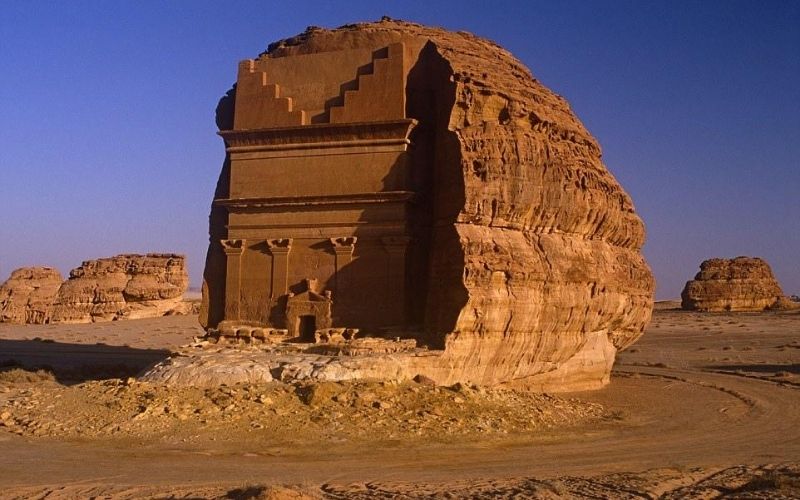
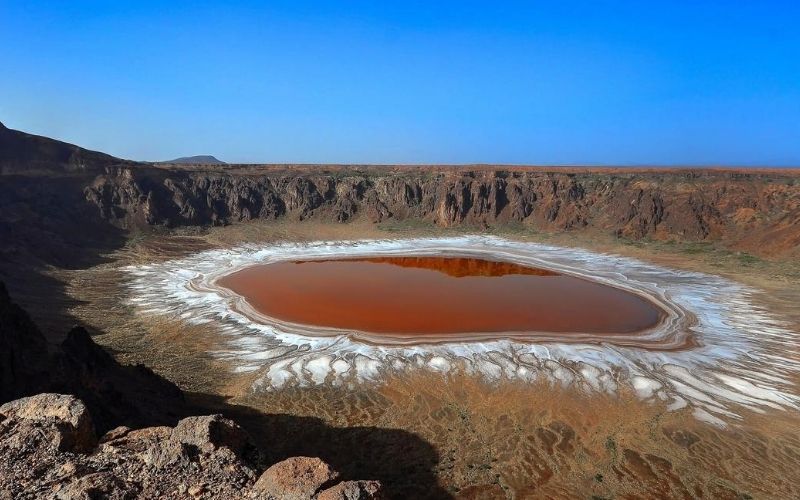
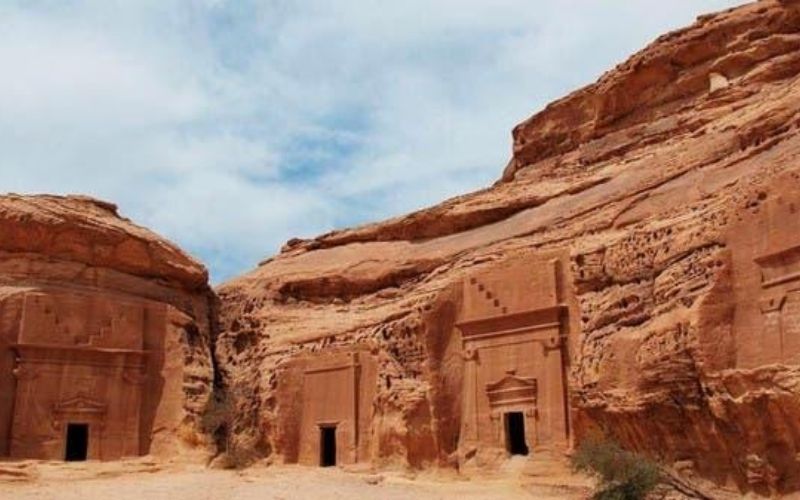
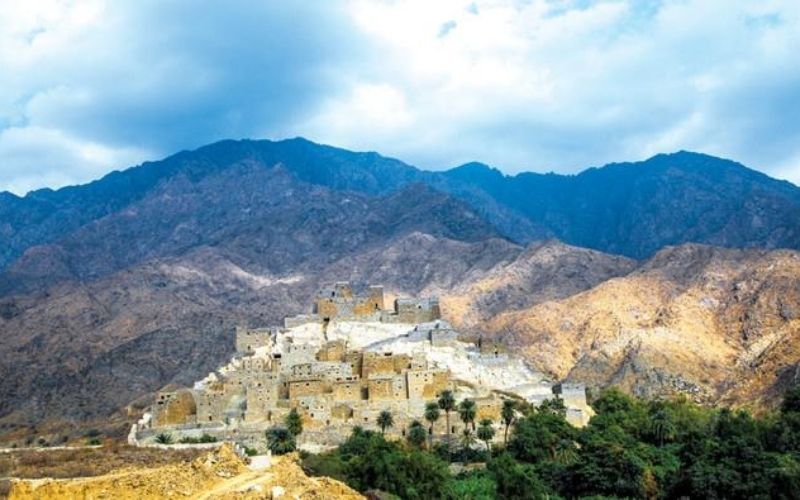
Ready to get started?
Interesting facts about Saudi Arabia
Saudi Arabia is the world’s largest oil producer and exporter
33% of the Saudi Arabian population is comprised of foreigners
There is no income tax
Alcohol and movie theaters are banned
Education is free at all levels
What our teachers are saying
I’d highly recommend Teaching nomad because it is a reputable, international agency that has teaching opportunities all over the world. Their website is easy to use, the consultants are attentive and help you throughout the process. I’d choose them all over again.
I was helped by Moira, and the support provided to me was second to none. I’m super grateful for the support. Finding a job during this difficult period would have been a challenge on my own, however, the assistance from Teaching Nomad made the process much easier. They also offered continuous support once I started working. They have been absolutely fantastic.
TN helped me from the very start, which for me was trying to decide which TEFL certification to go with. From there my consultant, Moira, helped me with the documents I needed, gave me resume tips, sent off my profile to various schools even before my certification was complete, and gave me interview tips when the schools wanted to meet me. Thanks to the help Moira and Teaching Nomad provided, I have just signed a contract with a higher than normal salary for a first-time teacher. Now they are helping me out with authenticating my documents and my application for a visa!
Blogs about teaching abroad
Learn all about teaching, traveling, and living abroad!
Teach Abroad Requirements: What You Need to Know Before You Go
Are you dreaming of teaching in a classroom that overlooks the Great Wall of China, the beaches of Thailand, or the bustling streets of Madrid? Teaching abroad can be the adventure of a lifetime—but before you pack your bags, it's important to understand the teach...
2025 Teacher Salaries in Saudi Arabia
If you're considering teaching abroad in 2025, Saudi Arabia should definitely be on your radar. With high demand for qualified educators, tax-free income, and a unique blend of traditional and modern lifestyles, it's one of the most financially rewarding destinations...
Teaching English in Thailand: Everything You Need to Know to Get Started
Dreaming of warm beaches, vibrant street markets, and the chance to truly make a difference? Teaching English in Thailand might be your perfect next adventure. Known for its friendly locals, delicious cuisine, and stunning landscapes, Thailand offers more than just a...

